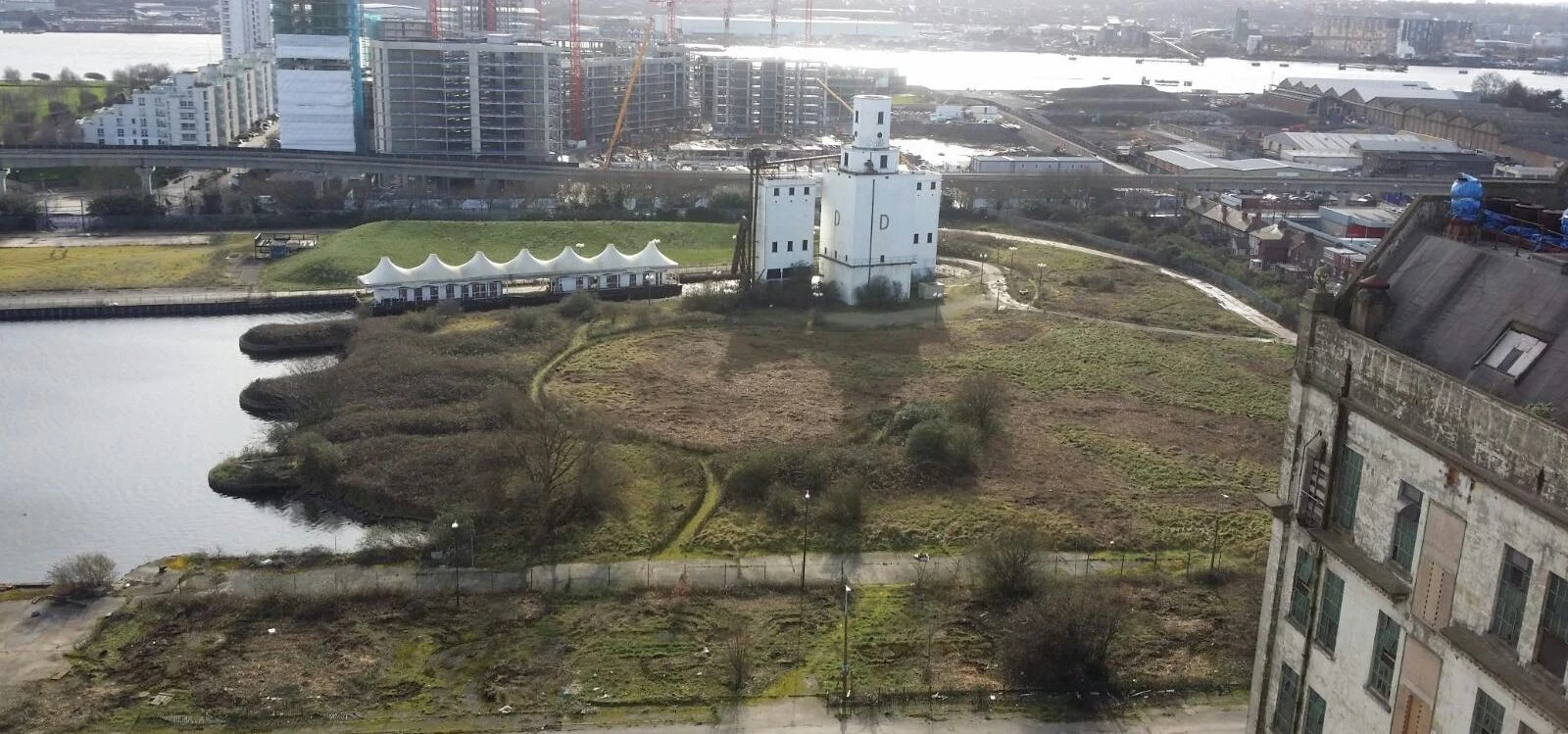
Partner Article
Ecologists safeguard wildlife at Silvertown Project in London
The transformation of the 62 acre Silvertown site in London’s Royal Docks is progressing with help from UK ecological contractor, Thomson Habitats Ltd.
With the first phase of Silvertown due to complete by 2018, works are ongoing to deliver 3000 new homes and five million sq ft of commercial space including the iconic Millennium Mills that will attract, residents, businesses and visitors from the UK and abroad and create over 21,000 new jobs.
Thomson Habitats has worked alongside AECOM in the early phase of the scheme, to clear any vegetation on the site which could have had the potential to be home for nesting birds. The works were undertaken outside of the nesting bird season and during reptile and bat hibernation periods to ensure the minimum amount of disturbance to wildlife. If any birds had started nesting in the vegetation, the nests could not have been disturbed until the young had fledged.
The site is due to receive the first stages of site investigations, and the prevention of access to some areas due to nesting birds could have had major impacts on the works programme.
David Grimmond, Business Manager for Thomson Habitats, said:
“This is an iconic project and one that we are excited to be involved with. Around 4.5ha of the site is vegetated and so far we have cleared a substantial amount of this. We are very much looking forward to returning later in the year to undertake the rest of the vegetation clearance.”
Silvertown has a history that dates back to the early 1900s when the area was one of the busiest ports in the world. Millennium Mills was built in in 1905 as a flour mill but was finally closed in 1992 after years of decline.
This was posted in Bdaily's Members' News section by Thomson Ecology .
Enjoy the read? Get Bdaily delivered.
Sign up to receive our popular morning London email for free.








 Raising the bar to boost North East growth
Raising the bar to boost North East growth
 Navigating the messy middle of business growth
Navigating the messy middle of business growth
 We must make it easier to hire young people
We must make it easier to hire young people
 Why community-based care is key to NHS' future
Why community-based care is key to NHS' future
 Culture, confidence and creativity in the North East
Culture, confidence and creativity in the North East
 Putting in the groundwork to boost skills
Putting in the groundwork to boost skills
 £100,000 milestone drives forward STEM work
£100,000 milestone drives forward STEM work
 Restoring confidence for the economic road ahead
Restoring confidence for the economic road ahead
 Ready to scale? Buy-and-build offers opportunity
Ready to scale? Buy-and-build offers opportunity
 When will our regional economy grow?
When will our regional economy grow?
 Creating a thriving North East construction sector
Creating a thriving North East construction sector
 Why investors are still backing the North East
Why investors are still backing the North East